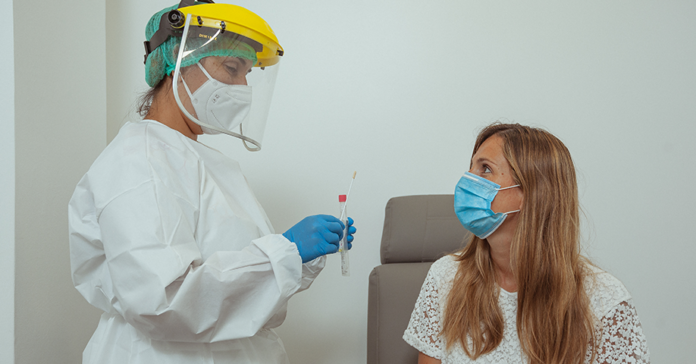Compared to earlier iterations of the virus, the new Delta variety spreads more readily. The good news is that this variation is still mainly amenable to immunization in preventing severe illness. Although rapid covid test dallas reports have proved that no vaccination has ever been 100% successful at preventing disease.
However, this is acceptable because there are other safety precautions we may take to prevent getting sick and transmitting disease like 15 minute covid test. It’s time for each of us to work together to flatten the curve, including those who have received vaccinations. This entails putting our masks back on and following other safety measures that have been effective throughout this pandemic. If you qualify, it can also include obtaining a COVID booster.
Here are five things vaccine recipients should be aware of.
- What the Numbers Show Your Danger
Breakthrough infections are happening, but the excellent news is that those who have received the COVID-19 vaccine are significantly less likely to require hospitalization than those who have not. Vaccinated people also have a much, much lower mortality rate.
This is good news because it demonstrates how effectively immunizations prevent significant illnesses. In reality, estimations indicate that the COVID-19 vaccination has averted more than 1 million hospital admissions and saved a quarter of a million deaths.
The vaccinations aren’t perfect, but they’re pretty near. The main issue with breakthrough infections is that it may be difficult to gauge how frequently completely immunized individuals unintentionally disseminate COVID-19 to others.
- When to Use a Mask and what Situations are Harmful and Safe.
You may be seeking assistance in determining what is safe and harmful after COVID-19 instances are still present. Vaccinated people can still feel secure congregating indoors with a small group of other vaccinated people. When a more influential group is present or in a public indoor setting, you should exercise additional caution.
Here are several instances and locations when you should put on a mask and keep your distance:
- In a hospital, clinic, or doctor’s office; while using public transit (including when traveling across the country); conducting errands; in an indoor public place; while attending a church service; during a holiday party or gathering where there will be unvaccinated guests.
- Scientists advise travelers to use caution while visiting and spending time in enclosed areas where it is challenging to wear a mask and keep your distance, such as pubs, restaurants, and group fitness classes.
- People with Compromised Immune Systems Should Use Much More Caution.
It is still unknown how effective COVID-19 vaccinations are in protecting those with impaired immune systems. It should be noted that even those who have had all recommended vaccinations, such as transplant patients or people using immunosuppressive drugs, may not be protected.
Even if wholly immunized and whether there is an increase in cases or not, these people should take extra care. To determine your risk and the safeguards you should keep taking, consult your doctor. Those who are immunocompromised and have a high risk of developing severe COVID-19 or contracting COVID-19 are now also eligible to get an additional vaccination.
The goal is that an additional injection would boost antibody protection in more susceptible individuals. Even if everyone in the group or family is immunized correctly, everyone should use greater caution while approaching someone immunocompromised.
Unvaccinated Child’s Parents Should Use Greater Caution.
Teenagers and children aged 5 to 11 are both eligible for immunization. Make an appointment for your child to receive the COVID-19 vaccination.
However, things are a little more difficult for parents of children under five. With your unvaccinated children, it’s crucial to exercise greater caution. This probably entails picking outside dining establishments over indoor ones and using additional caution while planning your family’s holiday itinerary or paying visits to ailing family members.
- Actions to Take if You Suspect COVID-19
Get tested three to five days after the exposure if you have received all of the recommended vaccinations and come into close contact with someone who has tested positive for COVID-19. It’s also advised that you wear a mask for 14 days following a known exposure, whether you have symptoms or not.
Is Coronavirus Hazardous After Vaccination?
Although new coronavirus infections can cause mild to severe sickness, there is little risk of serious illness, especially in healthy individuals without a history of chronic disease.
The COVID-19 vaccinations are particularly efficient at preventing serious coronavirus diseases, such as COVID caused by the delta coronavirus variety, which can lead to hospitalization, the need for a ventilator, or even death.
Who is Most at Danger from COVID-19’s Breakthrough?
Although anybody who has received all of their recommended vaccinations can have a breakthrough infection, those whose immune systems have been compromised by certain diseases or medical procedures are more prone to do so.
To boost their defense against the coronavirus, the CDC advises that patients with compromised immune systems obtain a third dose of the COVID-19 vaccination 28 days or later after their initial injection and go for COVID test after doctor consultation.

